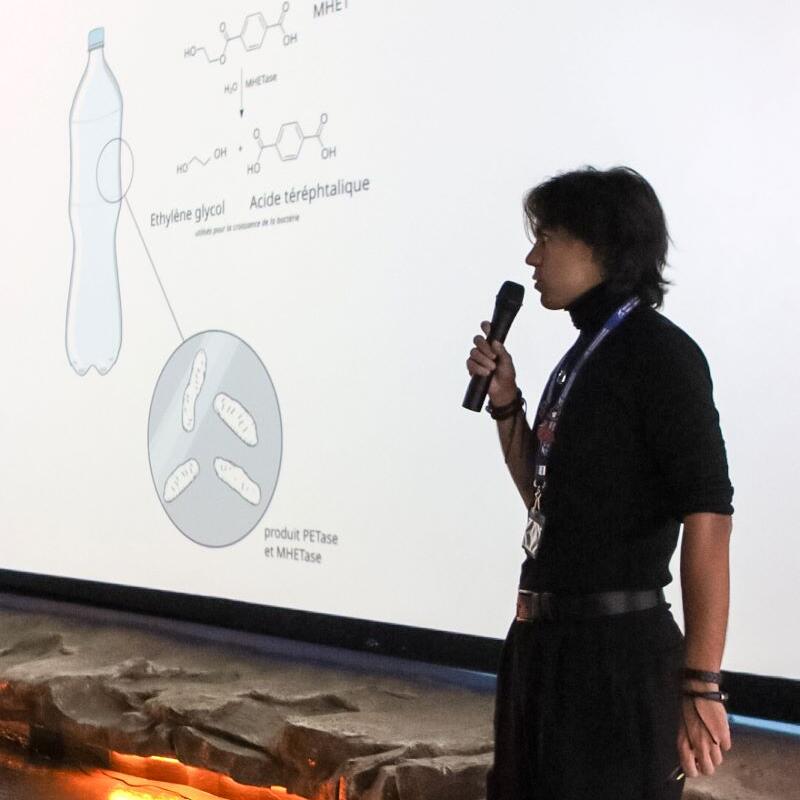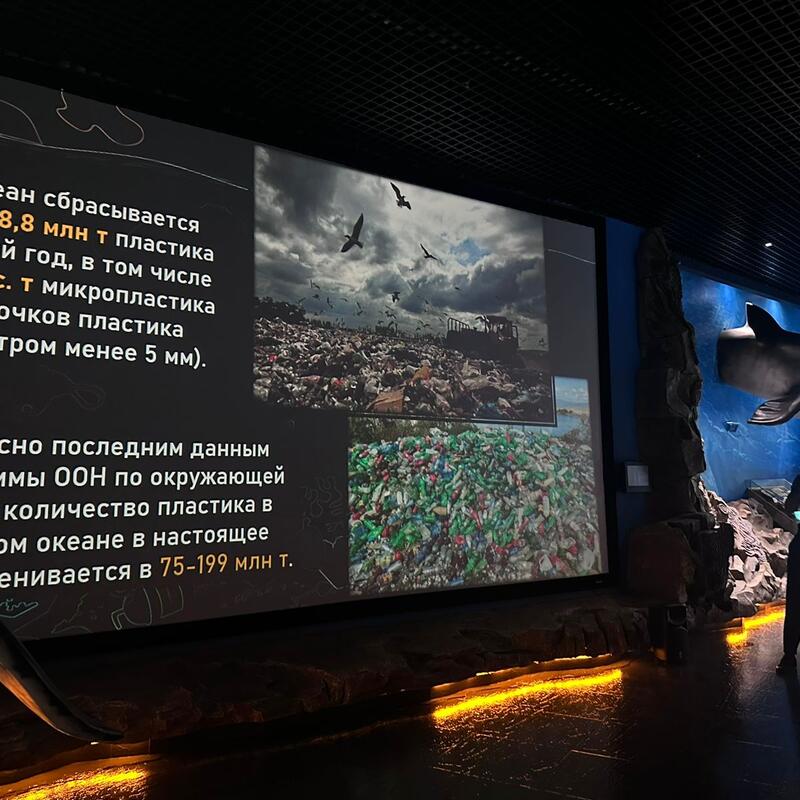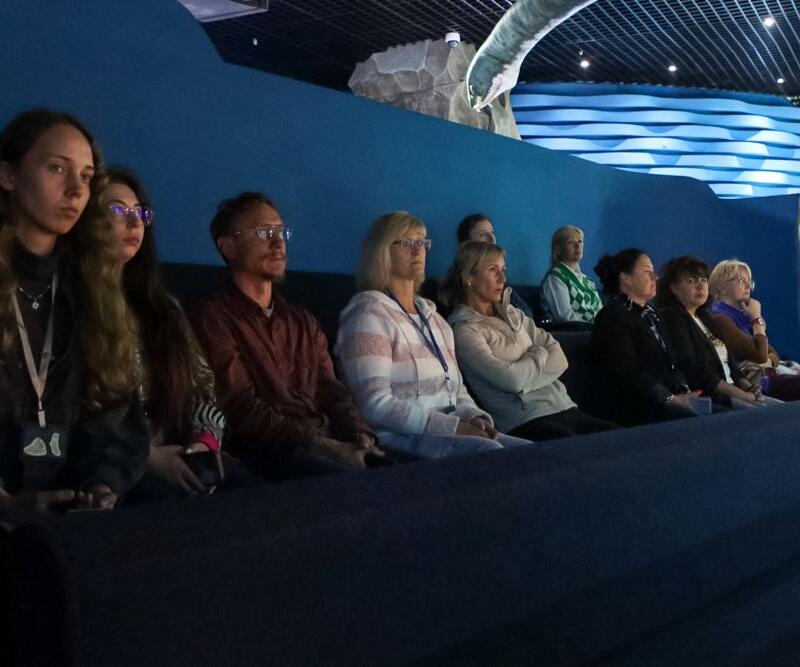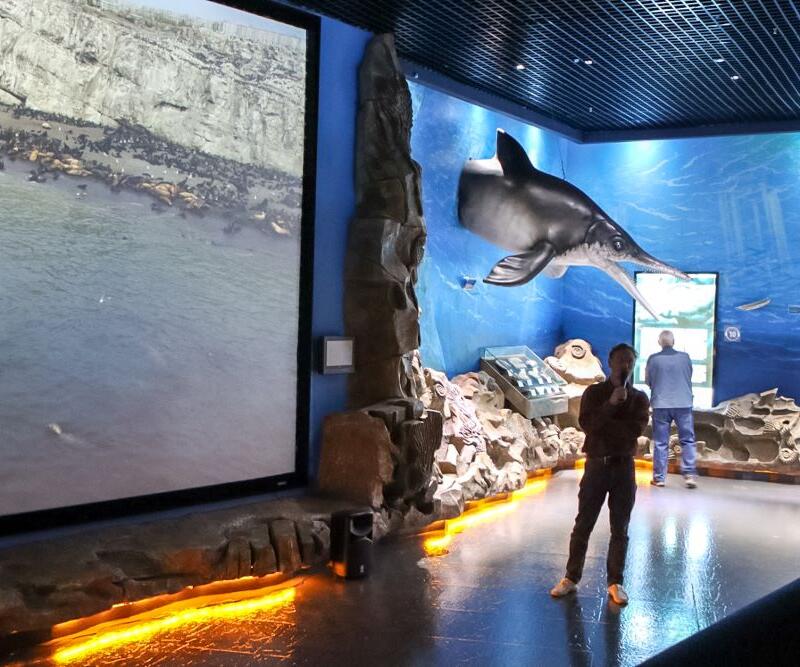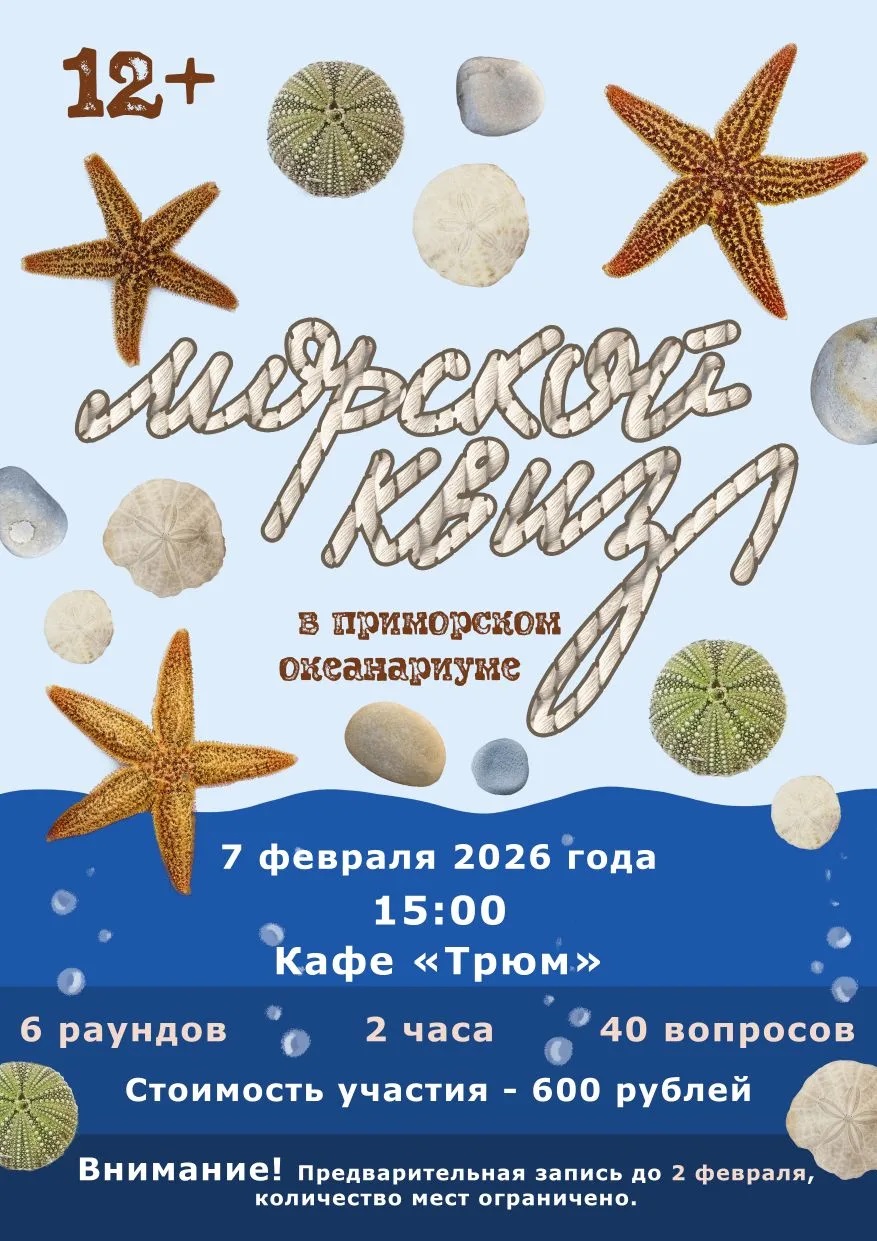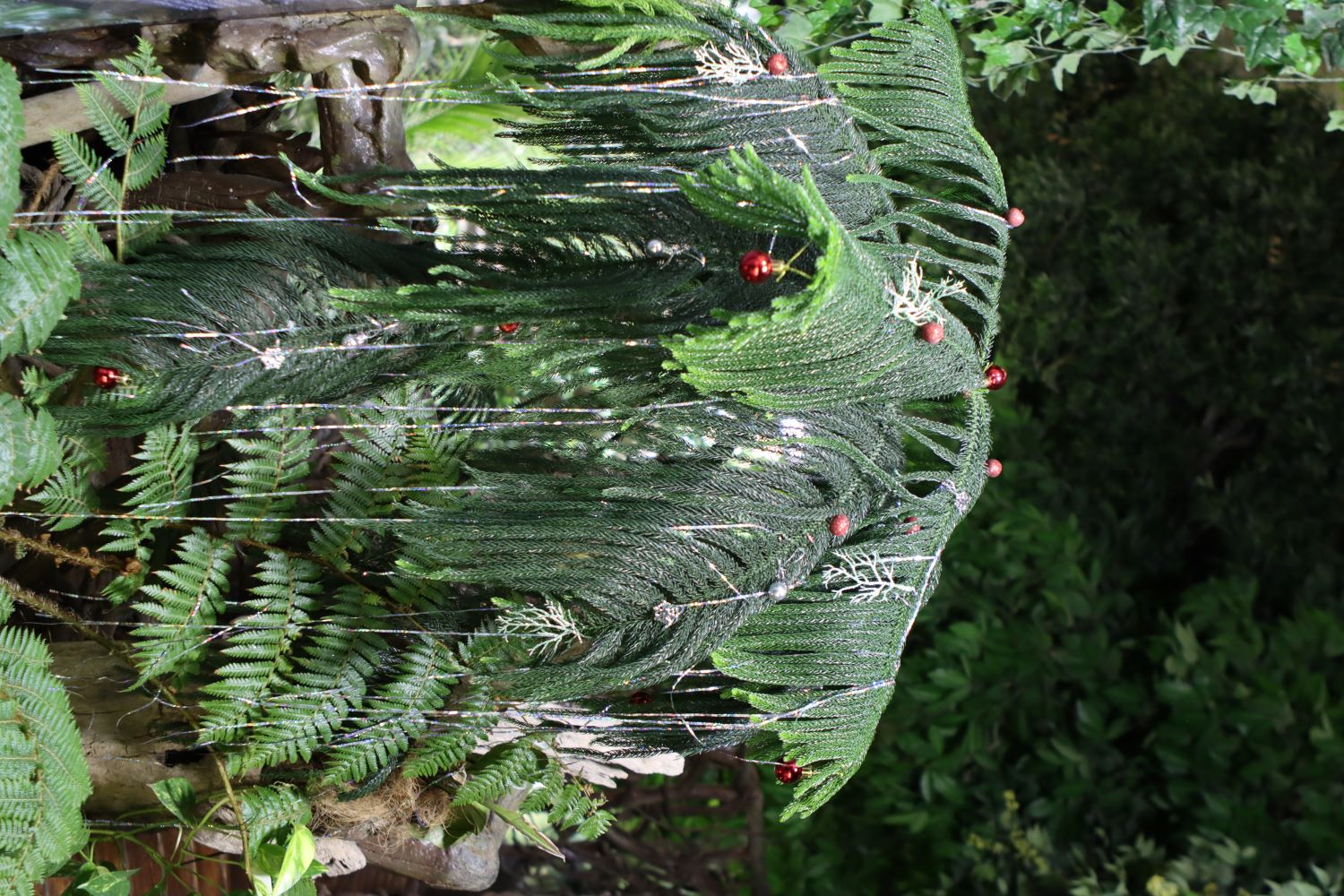On September 26, popular “42. Brief and to the Point” talks took place at the Primorsky Aquarium to mark World Maritime Day. The presenters shared lots of fun facts about eared seals and sea cucumbers, but the most important message of the event was marine biodiversity conservation and environmental safety. One of the talks focused on microplastics and why they are harmful.
The number of tiny plastic particles (microplastics) in the ocean is estimated at 200 trillion. Together with the other waste they form garbage patches growing at alarming rate. The largest of those, twice the size of France, is the Great Pacific Garbage Patch in the Pacific Ocean, between California and Hawaii. Plastic debris can impact wildlife in a number of ways. Firstly, plastic is toxic to organisms. Secondly, certain types of plastic debris, especially fishing nets, can trap or wrap around animals, entangling them. Moreover, fish, marine mammals and birds are likely to ingest microplastics, mistaking them for food. Microplastics can kill marine organisms when ingested or can work their way through food chains.
The Primorsky Aquarium takes action to reduce environmental pollution. Members of the Education Department regularly carry out beach clean-ups attracting volunteers to remove marine debris, mainly consisting of plastic, from the coast of Zhitkov Peninsula.

Another threat to the environment is overfishing and depletion of biological resources of the Ocean. The Primorsky Aquarium contributes to the restoration of biological resources by paying local hatcheries for the cultivation of aquatic organisms. It annually releases dozens of thousands of juvenile chum salmon and Japanese scallop into the sea. Since the foundation of the Primorsky Aquarium, its members have released more than 200 thousand clams into the Peter the Great Bay.
The children from the Growing up at the Aquarium project are taught to protect the environment from the first years of their learning. Together with their educators, they release salmon smolts grown in fish farms into the rivers of Primorye to recover wild populations. The kids also take part in local clean-ups and learn to sort the litter they find.
World Maritime Day was established in 1978 by the International Maritime Organization. It is celebrated during the last week of September, usually on the last Thursday. One of the focuses of World Maritime Day is the importance of marine conservation in preventing overfishing, ocean pollution and other threats.




